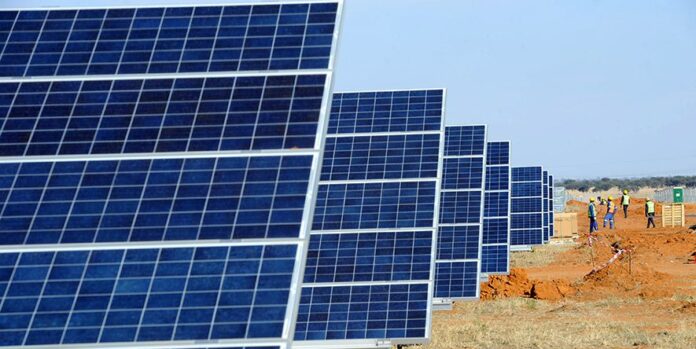The South African Photovoltaic Industry Association is crying foul over the timeframe provided for proposed tariff hikes for green energy products.
This comes after the Department of Trade, Industry and Competition (DTIC) made a proposal on tariff hikes on various imported goods in the renewable energy sector.
The proposal that was gazetted by the International Trade Administration Commission (ITAC), which is the entity of the DTIC, stated that the proposed measures would effectively increase customs duties on apparatuses used in solar, wind and battery storage technologies.
Sapvia stated that it has noted the Government Gazette notice, which is dated April 17, 2025 in connection with the proposed review of the tariff structure for input materials, components, and final goods within the renewable energy value chain.
Sapvia mentioned that it is currently focusing on submitting a comprehensive response by the deadline.
Sapvia CEO, Dr Rethabile Melamu said it was currently engaging its members to gather input and will be submitting a comprehensive written response by the provided deadline.
“Concurrently, Sapvia has initiated direct discussions with the International Trade Administration Commission to ensure our sector’s perspectives are fully considered,” she said.
In its gazette notice, ITAC stated that its plans to review 82 tariff codes for inputs and materials used in the renewable energy value chain included tariffs on a wide range of products.
Melamu added that while Sapvia was in consultation with its members, the organisation is planning to submit a detailed position in its formal submission based on our members’ inputs, where she raised concerns that the time provided for representations, which is four weeks, was too short to allow industry to make comprehensive submissions.
“The rationale provided for the tariff review does not clearly align with existing government strategies such as the South African Renewable Energy Masterplan, the Integrated Resource Plan, or our Nationally Determined Contributions.
“In our discussions with ITAC, it has been noted that the proposed tariffs are believed to support the creation of manufacturing-related jobs. However, most employment opportunities in the solar PV sector are generated during the deployment and installation phases of projects, not necessarily in manufacturing,” said Melamu.
Sapvia said any introduction of tariffs on solar components must be guided by a comprehensive value chain analysis, including a detailed assessment of employment potential across the entire PV value chain.




